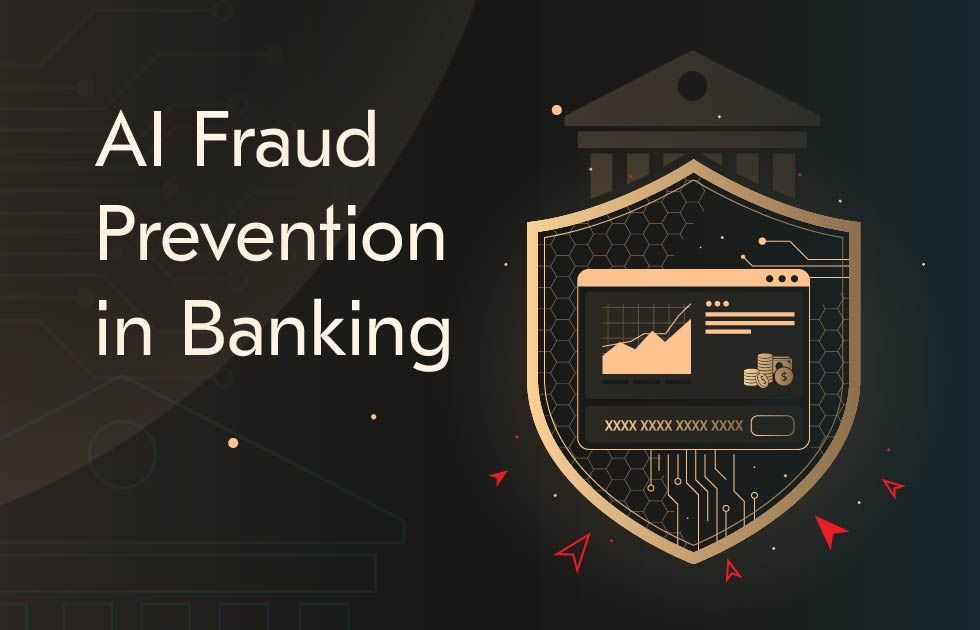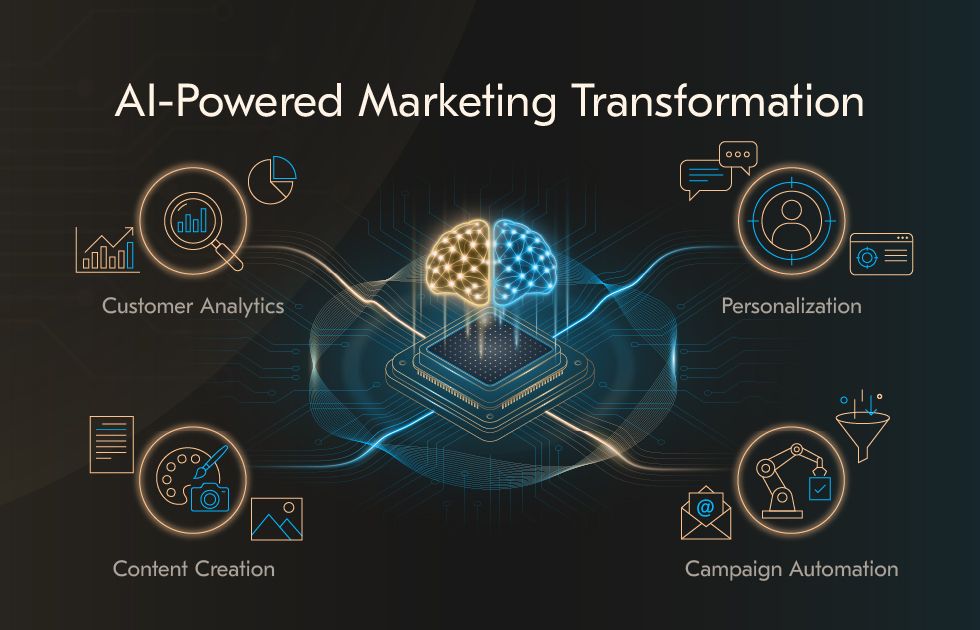
Key Takeaways
- AI in education enhances learning outcomes, improves accessibility, and streamlines administrative tasks, making the process more efficient and engaging.
- Applications of AI in education cover personalized learning, intelligent tutoring systems, automated grading, and predictive analytics.
- Leading companies like Coursera and Carnegie Learning already implemented AI to offer innovative learning experiences.
Education is the cornerstone of progress, yet the industry faces significant challenges. For instance, shortage of teachers, rising administrative workloads, and declining student performance. To relieve teachers from operational tasks and meet the diverse needs of students, institutions implement artificial intelligence for education.
Artificial intelligence is transforming this landscape by offering innovative solutions. But how can AI be used in education? From automating repetitive tasks to tailoring lessons for individual learners, the technology enhances teaching efficiency, improves student engagement, and bridges gaps in access.
In this article, you will learn more about the benefits of artificial intelligence in education, popular use cases, and real-world examples.
What is AI in Education?
First, let’s start with the key question: what is artificial intelligence in education?
The role of artificial intelligence in education is primarily to enhance learning experiences for both educators and students through data-driven solutions.
Its adoption surged during the pandemic as schools shifted to remote learning, but challenges like slow digitization and limited IT infrastructure in emerging regions hinder growth. Despite this, AI drives better outcomes with tailored lessons, chatbots, and data-driven insights, while reducing administrative workloads and boosting classroom engagement.
According to the expanding impact of AI on education, the market is expected to grow from $5.18 billion in 2024 to $112.30 billion by 2034, with a CAGR of 36.02%.

How is AI used in education through emerging technologies?
- Machine learning personalizes learning by analyzing student data to tailor lessons and resources.
- Natural Language Processing (NLP) powers chatbots and virtual assistants for student support, enabling communication and answering questions.
- Data analytics provides insights into student performance, helping educators make data-driven decisions for improved teaching strategies.
Benefits of Using AI in Education

The benefits of AI in education revolutionize the way it is delivered, empowering both teachers and students. Here are the most valuable ones:
Better Learning Outcomes
AI enhances learning outcomes for each student by analyzing their strengths, weaknesses, and preferences. This adaptability ensures learners receive content at the right difficulty level and in the most effective format.
Efficient Administrative Tasks
Streamline time-consuming administrative tasks like grading, attendance tracking, and scheduling. Automated SaaS grading systems quickly evaluate assignments, quizzes, and exams, freeing up teachers’ time to focus on more interactive or high-impact activities.
Data-Driven Insights
Another role of AI in education lies beyond analyzing vast amounts of student data (in some cases, including that from legacy databases) to identify patterns and trends. These insights boost decision-making, help predict student performance, and identify early signs of disengagement or academic struggles.
Enhanced Accessibility
Enhance accessibility for students with disabilities by providing support tools that make learning more inclusive. Text-to-speech, speech-to-text, and real-time translation help students with visual impairments, hearing challenges, or language barriers.
Scalability in Education
Scaling is no longer problematic with multi-tenant SaaS solutions powered by virtual classrooms, adaptive learning platforms, and AI-driven tutoring systems. This is especially important for online learning environments and in areas with a shortage of teachers.
Key Applications of Artificial Intelligence in Education

Today, when the use of AI in hospitality or transportation no longer surprises anyone, the technology also opens up new possibilities for students, faculty, and staff. Here are the key ways artificial intelligence is transforming the industry — with AI in education examples.
Personalized Learning
AI allows educators to deliver customized lessons and recommend resources. For students, it guarantees engagement by adapting content to their needs, fostering better understanding and retention. But what about well-known artificial intelligence in education examples?
Knewton uses AI to personalize education, allowing students to progress at their own pace while addressing individual learning gaps. The company has delivered 15 billion personalized recommendations across 300+ institutions.
Intelligent Tutoring Systems
Provide students with real-time feedback, guidance, and practice exercises. These systems mimic a human tutor, offering step-by-step assistance and tracking progress. Tutoring examples of AI in education are particularly effective in complex subjects like math.
Let’s see how artificial intelligence is used in education. Carnegie Learning’s MATHia provides an intelligent math tutoring system for middle and high school students. Powered by AI, it adapts to individual learning paths, offering real-time feedback and skill-level adjustments.
Automated Grading and Assessment
You can automate grading assignments, quizzes, and even essays, saving educators time and ensuring consistent evaluation. With advanced NLP techniques as examples of artificial intelligence in education, the technology assesses texts for grammar, coherence, and argument structure.
Coursera integrates AI into peer review grading to provide fast, consistent feedback. AI grades submissions 900x faster than humans, improving completion rates by 16.7%. The system delivers personalized insights using instructor rubrics, with a 72% first-attempt pass rate.
Decentralized Learning System
AI and blockchain technologies work together to create decentralized learning platforms. Examples of AI technology in education enable global access, allowing students to learn independently from educators or institutions.
BitDegree uses blockchain to ensure transparency and trust. For example, it introduced blockchain-based micro-scholarships in 2019, NFT certificates in 2022, and NFT-gated courses. In 2023, it launched Web3 Missions and Exams, rewarding students with blockchain-powered incentives.
Chatbots and Virtual Assistants
It’s time to handle routine queries and provide immediate support to students and educators. Let chatbots clarify doubts, assist with enrollment processes, and remind learners of deadlines or assignments.
As one of the great AI for education examples, Cognii’s Virtual Learning Assistant offers real-time feedback on open-ended answers, using NLP to assess syntax, semantics, and concept hierarchy. It provides personalized coaching, improves with use, and is 96% as accurate as humans in grading essays.
Automated Administrative Operations
How AI used in education for automation? For example, you will streamline administrative workflows, such as student registration, class scheduling, and fee management. Reduce human error, speed up processes, and focus resources on teaching.
AI Proctor ensures exam integrity with real-time monitoring, face and speech detection, and detailed reports. It works with any exam platform, even with weak internet or power outages. It detects unauthorized programs and browser activity while allowing instructors to view screens and control the exam.
Challenges and Considerations in Implementing AI Technology in Education

Like any impactful technology, AI applications in education examples come with their own set of limitations, challenges, and potential for misuse. Let’s explore them in detail.
Data Privacy
Challenge: With rising AI for education use cases, vast amounts of personal and academic data are being collected. This raises concerns about data security and privacy, especially compliance with regulations like GDPR and FERPA.
Solution: Institutions should enforce strong data protection policies (encryption, access control, and anonymization) in web app architecture, as well as clear consent protocols and regular audits to ensure security.
Reliance on AI
Challenge: Excessive reliance on AI in education use cases can reduce human involvement, limiting educators’ roles and impacting student-teacher relationships.
Solution: AI should assist, not replace, teachers, providing support while educators make final decisions. Proper teacher training will ensure effective AI integration while maintaining their vital role.
Algorithm Bias
Challenge: AI algorithms, especially those designed for grading or admission decisions, may be biased, perpetuating inequalities and affecting certain student groups.
Solution: Regular auditing and testing of AI algorithms are crucial to identifying and mitigating potential biases. To ensure fairness, diverse datasets that reflect a wide range of experiences, backgrounds, and learning needs are also essential. Leverage our AI/ML consulting services to ensure your AI solutions are bias-free.
Ethical Balance
Challenge: AI may pressure students into specific career paths or limit their educational opportunities based on past performance or data-driven predictions.
Solution: Institutions should adopt ethical AI guidelines prioritizing fairness, transparency, and student autonomy. Design the solution to support educational goals rather than controlling or manipulating student choices.
Why Choose Acropolium?
Acropolium is a trusted and recognized vendor with extensive experience delivering secure educational projects. With expertise in GDPR-compliant bespoke software, ISO-certified processes, and serverless solutions, we ensure that every project meets the highest standards of data security and performance.
As a global AI consulting leader, Acropolium drives innovation while protecting sensitive data according to the latest education, hospitality, logistics, healthcare, and fintech trends.
Our proficiency spans across a wide range of services that highlight the importance of AI in education:
- Natural Language Processing (NLP) for advanced text analysis and sentiment detection,
- Predictive analytics for forecasting learning success;
- Conversational AI/Chatbots for personalized student interactions;
- Computer Vision, Voice, and Speech Recognition for easy authorization and control through exam;
- Generative AI for learning content creation and other advantages of using AI in education.
Acropolium Case Studies
We don’t want to be verbose, so let’s talk about our expertise using these case studies:
AI-Based Pharma Application Development
A leading healthcare provider partnered with Acropolium to revolutionize its operations through an AI-powered pharmacy app. Popular AI use cases included automated prescription processing and enhanced patient engagement tools. Also, the app ensured compliance with healthcare regulations.
The solution improved operational efficiency by 30%, increased patient retention by 15%, and enhanced data security, cutting breach risks by 25%.

Cross-Platform E-Learning Portal Development
Acropolium developed an e-learning platform with course-building, document automation, and video streaming to enhance student and tutor experiences. How is AI impacting education? The platform increased user engagement by 85%, reduced administrative overhead by 65%, and expanded the client’s reach, resulting in a 40% increase in user registrations.

Final Thoughts
Artificial intelligence is transforming the way we teach and learn. With advantages of AI in education like personalized learning, intelligent tutoring systems, and automated grading, it’s revolutionizing both student engagement and educational outcomes. As a result, AI-driven platforms enhance accessibility, streamline administrative tasks, and create interactive, scalable learning environments.
At Acropolium, we make successful AI solutions for education accessible through a convenient subscription-based service. Our offering covers all the essential needs of secure software development at a fixed monthly fee. Wonder how is AI affecting education? Reach out to our outsourcing dedicated team today, and let’s start building something extraordinary together!









![AI in Renewable Energy: [Use Cases, Benefits & Solutions for 2025]](/img/articles/artificial-intelligence-and-renewable-energy/img01.jpg)

![AI in Automotive Industry: [9 Use Cases + Examples]](/img/articles/ai-in-automotive-industry/img01.jpg)
![AI in Retail: [Use Cases & Applications for 2025]](/img/articles/ai-in-retail-use-cases/img01.jpg)

